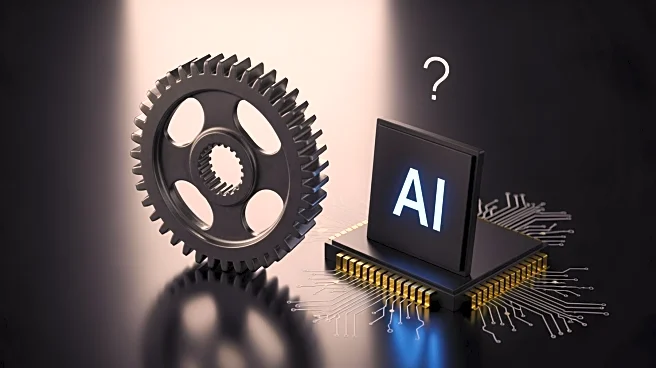What's Happening?
Individuals across various industries are sharing their experiences of job displacement due to AI integration. Workers from sectors such as insurance, visual arts, and costume design report being replaced
or having their roles diminished as companies adopt AI technologies. These changes have led to increased workloads for remaining employees and concerns about the accuracy and reliability of AI systems in handling complex tasks.
Why It's Important?
The rise of AI in the workplace is reshaping job markets, with significant implications for employment and economic stability. As AI systems become more prevalent, workers face the risk of job loss or role transformation, necessitating new skills and adaptability. This trend could exacerbate economic inequality and create challenges for workforce development, as industries and governments grapple with the need for retraining and support for displaced workers.
What's Next?
As AI continues to advance, industries may need to implement strategies for workforce transition, including retraining programs and support for affected employees. Policymakers and business leaders may need to address the social and economic impacts of AI-driven job displacement, ensuring that technological progress benefits society as a whole.
Beyond the Headlines
The experiences of displaced workers highlight the ethical considerations of AI adoption, including the responsibility of companies to manage the human impact of technological change. This could lead to broader discussions on the role of AI in society and the need for policies that balance innovation with social welfare.









